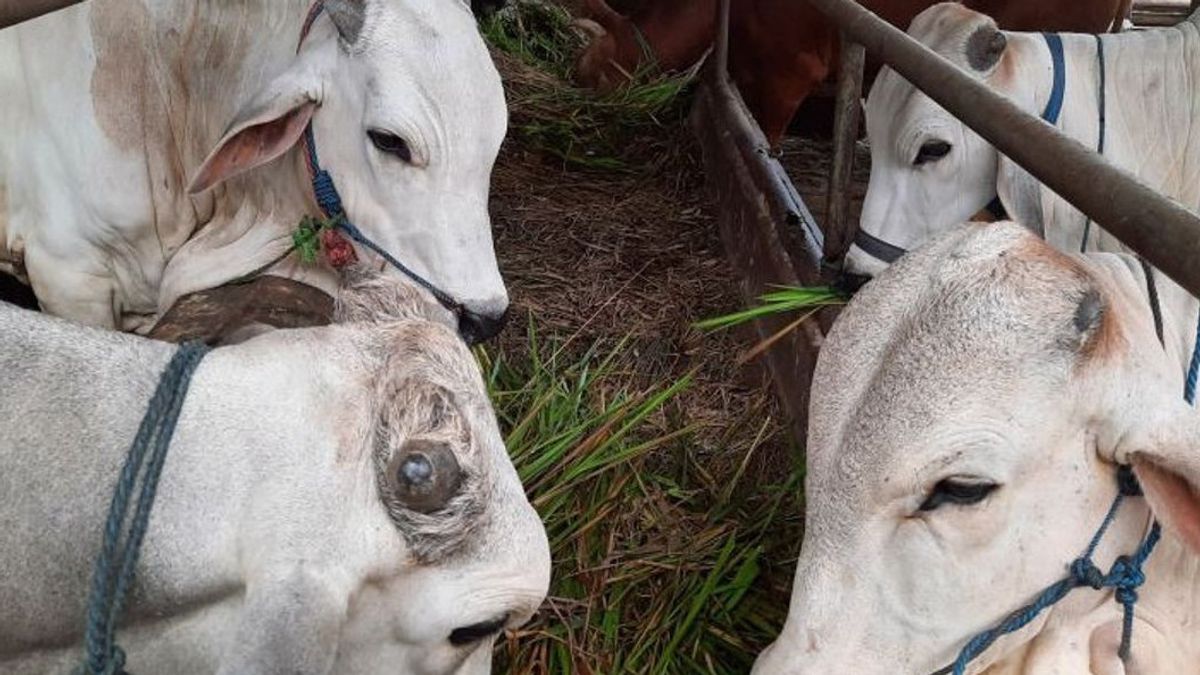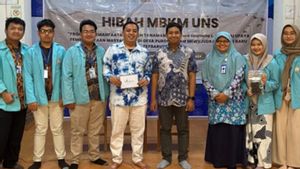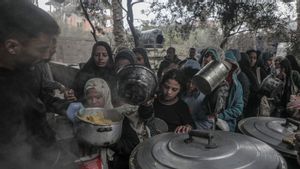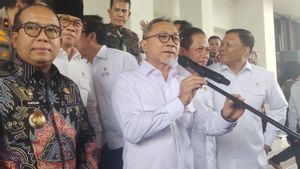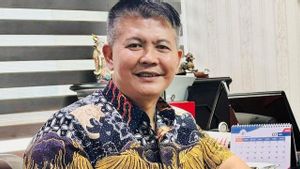JAKARTA - The Governor of Central Java, Ganjar Pranowo, has proposed a zone-based treatment of mouth and nail disease (PMK), not government territory. This is to anticipate the movement of livestock and other elements carrying the virus around the nearest area.
"Earlier, someone suggested a village or sub-district basis. In my opinion, the zone is a village and several villages, or a sub-district and several sub-districts, so that it is not restrictive or limited to the territory of one government. Sometimes the cows are also picnicking, the goats are picnicking. - Picnic, and this is not only cows, there are buffalo, there are pigs, there are goats, yes, so animals with split nails," said Ganjar in a written statement, Wednesday, June 29.
Ganjar gave an example, from several cases that were traced, it was found indications of livestock in one location that never left the cage, but were still infected with FMD.
It is strongly suspected that the transmission occurred because there were other livestock such as goats roaming around the cage. Therefore, quarantine is needed for split-hoofed livestock such as cattle, buffalo, goats, and pigs.
"This is an important thing to do, and we have prepared the SOP because the transmission of the virus is airborne, so it is carried in the air and it is much more dangerous. So far there are no masks for cows, so it is a bit risky for transmission," said the governor.
He explained, PMK has become a joint PR because the spread or transmission of cases has become quite exponential. However, Ganjar is optimistic that this disease can be controlled, because the community already has experience in dealing with the COVID-19 pandemic. One important thing for handling this case is data.
"Well, who is taking the data, right now there are extension workers. We entrust it to friends who often have contact with livestock, livestock groups, and so on. Friends who work as inseminators are usually also very familiar with cows, this can also be used. Campus and students can use it, the concept already exists,” explained Ganjar.
In addition, in Central Java, there are also Jogo Ternak and Bolo Ternak, which must be maximized properly to check so that they do not become mere jargon. Ganjar also gave directions to the relevant agencies regarding steps to handle in Central Java, one of which was about accelerating animal vaccination.
"We conveyed some of the items to our office comrades after the meeting with the Coordinating Minister for Maritime Affairs, so that it could be accelerated, because the fact is that our vaccine needs are still far from what we have," he said.
He added that so far, only 75,500 doses of the vaccine have been obtained in Central Java. Whereas the number of livestock, both cows and buffalo, in Central Java is around 2.1 million heads. In order for all to be vaccinated three times, it would require about 6 million vaccines.
“We need about 6 million vaccines because there will be three times. At least in the next six months, the first vaccine can be injected, it can be fast. So I asked where the vaccine was. Previously, the decision was made by the Ministry of Agriculture to have experts to carry out or make their own vaccines. If you need to import, you need to import, but the Coordinating Minister for Marine Affairs ordered that domestic products be sought. How far can it be done so that we will be able to isolate or quarantine, "he said.
In a meeting with the Coordinating Minister for Maritime Affairs and Fisheries, Ganjar also conveyed findings in the field related to the movement of animals and animal traders. He said that the quarantine of livestock had been carried out in cages and they were not going anywhere. But at that time the traders were moving from cage to cage. This is one thing to watch out for, because it could be that the traders can carry the virus.
"When it's baltiknya, people who buy and sell livestock are careful, because it can also carry the virus. So he just wanted to look around and then it turned out that he was carrying it from one cage to another. It also has to be paid attention to,” said Ganjar.
He is also calculating the need for PCR, lab, and equipment, as well as the drugs needed. He asked that there be a total count of all these needs. Furthermore, talking about funding, each district/city and province is preparing a budget for handling PMK.
"Lastly, of course, we talk about the source of funds and their impact. The source of funds from the center will be PEN which will be issued, earlier there was approximately Rp. 4.6 trillion and is being discussed with the Minister of Finance. The regions also prepare both at the district/city and provincial levels. After there is an economic calculation, of course we will calculate the socio-economic impact. Even if it is assumed that in the future there will be compensation, hopefully later the farmer will be calm, the farmer will be calm, and there is no need to be excited. So it's best before the vaccine is more massive, try not to move all the livestock," concluded Ganjar.
The English, Chinese, Japanese, Arabic, and French versions are automatically generated by the AI. So there may still be inaccuracies in translating, please always see Indonesian as our main language. (system supported by DigitalSiber.id)
